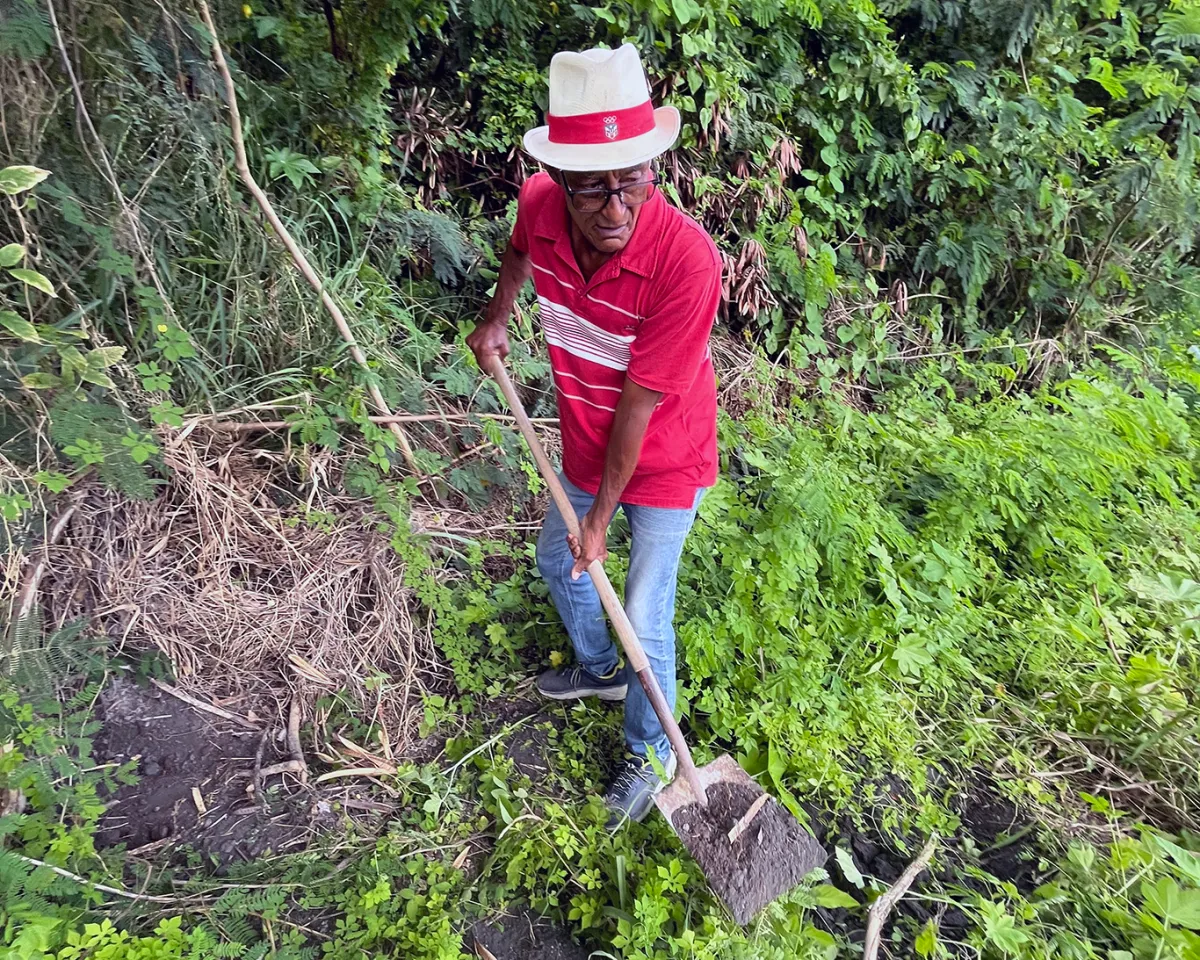
For more than a decade, the Energy News Network (ENN), an editorially independent nonprofit news site published by Fresh Energy, has been shining a light on important energy-related stories that do not get told by mainstream media. It’s one of the things that makes ENN’s approach to journalism so special.
ENN’s reporting in 2023 has maintained this high standard and continued its unique approach of telling energy stories for a broader audience who are interested in and curious about energy, but not “in the weeds.” A standout story from the past year came from long-time ENN contributor Kari Lydersen and featured Puerto Rico residents who have, for decades, been fighting toxic coal ash contamination.

To tell this story, Kari traveled to Puerto Rico with support from the Walton Family Foundation to learn first-hand how its south coast citizens have been taking on toxic coal ash contamination. Coal ash is a toxic byproduct from generating electricity from coal that has been used as landfill in infrastructure projects like roads and bridges. Kari’s travel, research, and interviews have resulted in a reporting series with her Northwestern University students in 2022, multiple articles about coal ash with ENN, and an article in collaboration with the Institute for Nonprofit News’ program, the Rural News Network.
Historically, Puerto Rico has relied on a centralized power system, where electricity is generated in one area then transported to a population center where it’s used. This makes the system susceptible to blackouts during natural disasters like Hurricane Maria, and also has environmental justice issues like improper coal ash disposal.
“Puerto Rico is a great case study on the problems with relying on a centralized fossil fuel generation system,” said Lydersen. “There’s a grassroots effort on the island that’s creating distributed solar with microgrids and battery systems for a decentralized, more resilient energy system that won’t have the environmental injustices associated with relying on centralized coal, oil, and natural gas plants. Puerto Rico is really a model of both the harms of the old system and the promise of the new. That’s very applicable for the Midwest.”
Coal ash is the toxic byproduct of burning coal to generate electricity, and it contains heavy metals like chromium, arsenic, and selenium that contaminate waters and are linked to higher rates of cancer and other diseases. As coal plants in the U.S. close, they leave behind nearly a billion tons of toxic coal ash, which only came under regulation by the Environmental Protection Agency (EPA) in 2015, and those rules were barely enforced until the EPA began to take regulatory actions in 2022.
In Puerto Rico, coal ash was used as a cheap material to fill land and construct roads between 2004 and 2011, and the new EPA regulations don’t cover the coal ash used in these infrastructure projects and exempt the power plants from responsibility. This has grown into an environmental justice problem, as most of the coal ash was used away from Puerto Rico’s tourist areas—instead, it was most prominent along Puerto Rico’s south coast, a rural, economically struggling region.

“This is so important to report on because it’s an environmental justice issue: it puts water supplies at risk and is disproportionately in communities of color and rural areas that rely on well water and don’t have access to water testing,” says Lydersen. “Coal ash is a global problem. As we make the clean energy transition, we’ll be stuck with coal ash for a long time, and it’s a chilling reminder of the long-lasting harm and conundrums that bad choices saddle us with.”
Publications like Energy News Network provide a vital service in reporting on technical, complex energy issues with a focus on equity—and by filling in gaps and providing substance and context for readers. Lydersen’s story was widely shared among coal ash activists on social media and was republished in the Sierra Nevada Ally and The Daily Yonder.
When asked about the role that journalism plays for our society as we collectively experience climate change and build the energy transition, Kari said “Energy is so complicated, from the science of coal ash to understanding where and how our energy is generated and its ripple effects. Explaining a really complicated sector to people is important so that people can have a voice in how we move forward and make that transition. A regular daily newspaper or magazine will cover energy now and then, but it’s important to have an outlet like ENN that can get in the weeds in an accessible way on a daily basis and cover issues with an equity and justice perspective.”
Read more of Kari’s in-depth reporting on coal ash in Puerto Rico.
Learn more about the Energy News Network
The Energy News Network is a nonprofit news site published by Fresh Energy that operates as an editorially independent news and information site dedicated to keeping stakeholders, policymakers, industry employees, and citizens informed of the important changes taking place in the transition to a clean energy system.
Since 2010, the Energy News Network has grown from a daily collection of energy stories from the Midwest into a national news service with three full-time staffers and 12 part-time contributors around the country, providing a daily digest of aggregated content and original reporting on energy stories for a wide swath of the energy industry.
It’s grown to have five daily email digests that serve over 20,000 subscribers, as well as over 40,000 people visiting the website each month.
Dan Haugen, managing editor, says that ENN brings value to its readers by being a trusted source of information for all stakeholders at the table for important state and local clean energy decisions. “We see ourselves as having the ability to increase the quality of the debate and issues by providing an agreed-upon set of facts,” says Haugen. “We cut through the jargon and technical explanations to make it possible to understand and trust.”
Haugen notes that it’s rare in the energy journalism space to write for a broader audience: most publications focus on small, specific audience, whereas ENN unites an audience of policymakers, academics, citizens, developers, utilities, and more to provide trusted information for all stakeholders.
